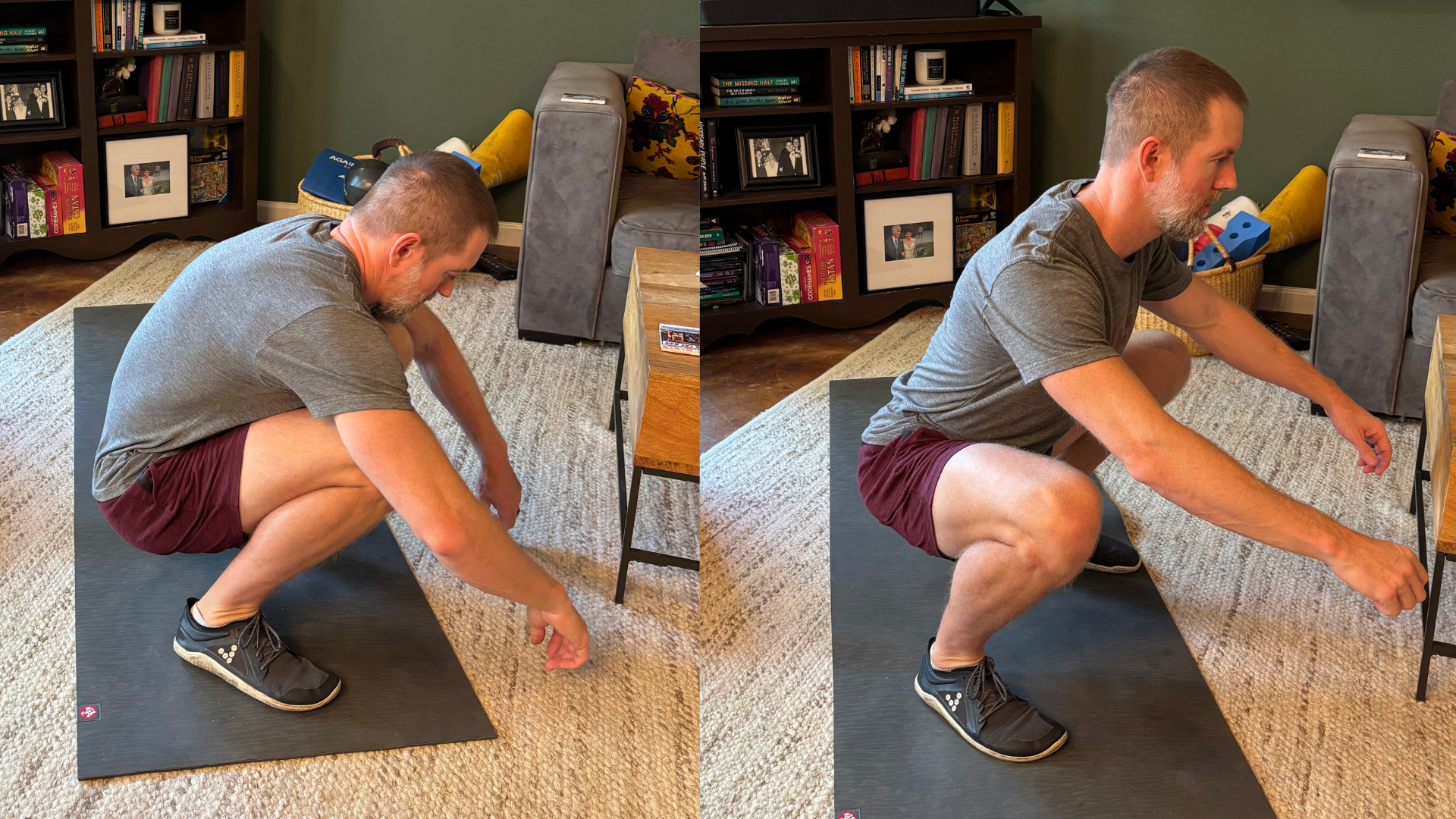Increase Your Willpower
Written by Kyle Ligon - MovementLink.FIT Head Coach
Willpower is like a skill that can be grown and developed, but to do so, we must first understand what it is, what it is not, and how it works.
People tend to mistakenly think that when you have a lot of willpower, it makes things easy. Having a lot of willpower is more like having the confidence to do the things that you don’t feel like doing in the moment. It’s a little like needed to first be scared to have the opportunity to be brave, if you felt like doing something, then it wouldn’t take willpower to do it. Willpower is inherently about getting yourself to do the opposite of what you feel like doing. High intensity exercise is always very challenging. As we get fitter, workouts do not get easier, we just get better and better at handling the challenge. The more experience we gain, the more confidence we build in understanding that yes, it is going to be challenging, but I will be OK. Willpower is the same - challenge must be embraced and not misunderstood.
The game is to:
Understand what is and isn’t a willpower thing
Work to increase your willpower
Set-up your life in a way that decreases the amount of times you need to rely on willpower.
Let’s start with what willpower is and isn’t…
I have seen this scenario pop up a ton with my clients:
Let’s say someone is trying to limit the desserts they eat. Maybe they are at a restaurant, a party, a wedding, or at work and everyone around them is eating dessert. When they don’t want themselves to eat any dessert, but they have a craving to, the subsequent willpower battle has already begun. This is the exact moment where people’s thinking can lead them astray or can further boost their resolve.
The Mindset that Leads Us Astray - People sometimes mistakenly believe that if they had a lot of willpower, then they wouldn’t experience cravings or when they do experience them, they would easily fight against them making them go away. Because of this thinking, when these people inevitably experience a craving, they feel that just having the craving is an indicator of a flaw and that it means that they have low willpower. From there, as the craving gets stronger, because they feel that someone who has a lot of willpower wouldn’t have to struggle this much with a craving, they make the illogical jump to the fact that they are being challenged as more proof of their low willpower. Because they are identifying as someone with low willpower, they are likely to eventually give in.
If you read that one more time, you’ll see that the thinking that lead to giving up actually didn’t have very much to do will willpower at all. If someone didn’t have a craving or experienced a very mild craving, then not eating the dessert would take almost zero willpower.
Let’s look at it this way - at the moment of the craving, this person has yet to give in. That takes a lot of tenacity and grit. But because of their poor perspective on willpower, they are slowly convincing themselves of the opposite. They should be proud that they are resisting a huge craving, which is actually proof of high willpower not low.
The Mindset that Boosts Willpower - Cravings are inevitable and are out of your control. Challenge is inevitable and part of life. The game is to understand that when something is incredibly hard to resist, just the fact that you haven’t give in shows huge willpower. Embrace the challenges of resisting cravings because it will grow your willpower even more…
The Challenges are what Increases Willpower
Willpower has some related terms, tenacity and grit, which I actually prefer. This may be just me, but the term willpower makes me imagine someone succeeding easily, without much of a challenge, but tenacity and grit makes me imagine someone completely tired, stressed, in the mud, struggling, but still continuing to crawl forward - someone who is unbreakable no matter the circumstance. I want to build grit because the more confidence I grow in my capacity to withstand anything I want myself to, then when I start battling whether or not I am going to eat a dessert I don’t want myself to eat, it’s easier for me to imagine myself winning that battle because I know I can withstand much worse. If I get upset with myself about having the craving, then I am focused on the wrong thing. I accept the craving and focus on what I want myself to do instead of what I feel like doing.
There’s actually a brain region, the Anterior Midcingulate Cortex, that seems to be a primary driver of grit. In an experiment published in Neuron, when this area was electrically stimulated, participants had feelings like something was about to happen, something not so good, kind of like a storm. They felt they needed to go into it or towards it, but they also felt confident that they will make it through. To me, the reactions when this brain region is stimulated sounds very similar to what I believe confidence to be - anticipating challenge, maybe something that’s scary or nerve-wracking, but confident that you, as you are in this moment, are prepared and good enough to handle this moment.
I find this really cool - What drives grit really is just the confidence that you can handle challenging situations if you just hang in there. When we are scared, nervous, or fighting a craving, we are really just scared of the outcomes. With food in particular, when I am in a mode of resisting additional food, the thing pulling me towards it is the uncertainty of how I am going to feel if I do not eat it. In the moment, it’s hard to imagine a craving going away. When I think about it, the grit I have developed with sticking to my diet plan, really is just a foundation of confidence where I know that if I stick to my plan, everything is going to be fine. I will make it through whatever feelings I’m currently having and I want as many choices I make to line up with the life I want myself to live.
The Anterior Midcingulate Cortex has also been found to have high neuroplasticity, meaning that the area can be developed and changed. The area shrinks as we age, but we can maintain its size and even grow it by participating in challenging things, especially things that we do not feel like doing. Challenging exercise, public speaking, hard conversations, competitive sports, cold exposure, learning something new and challenging, resisting cravings, and many more things can all develop the Anterior Midcingulate Cortex.
The more challenge we experience the more this mindset compounds on itself. Not only will following through on thing we want ourselves to do when we don’t feel like it pushing us consistently towards our goals, but with each challenge embraced, our grit increases, further growing our confidence in our ability to handle challenge.
Beyond physically improving your brain, quality sleep, healthy food, and stress management go extremely far in giving you the energy to fight.
Set-up Your Life to Minimize How Often You Use Willpower
As we build up our willpower and grit, we increase the likelihood that we follow through on the things we want ourselves to do. This is just one angle and if we are constantly battling and relying on our git, it can feel exhausting and eventually can lead to failures. Instead, we can use a few strategies that makes the moments that require grit fewer and farther in between, so when the big moments come, we are fully charged and ready to battle.
Let your environment work for you. Cookies on the counter require you to rely on your git to a much greater degree than if they are out of sight in the cupboard. If they are not in the house at all, then the number of willpower battles you have will decrease dramatically. Design your environment in a way that makes the things you want yourself to do as easy as possible and the things you don’t want yourself to do as hard as possible.
When you are motivated, create plans, rules, and strategies that pre-make decisions for you.
Adopt a gritty mindset of “nothing will stop me from following through on my plans.” This is actually very low stakes - if, in the moment you are questioning your plans and don’t feel like doing it, follow through anyway. Afterwards if you decide that you were actually correct and want to change your plans in the future, then you followed through on a plan you don’t like one extra time. This is not a big deal at all and you can revisit step 2 and update your plan for next time. But, where this strategy is extremely powerful is that it can get you to follow through when you’re just having a tough moment. You’ll consistently do the things you want yourself to do and build more and more grit along the way. So, do not negotiate with yourself in the moment, follow through on your plans no matter how you feel.
Understand that questioning your plans in-the-moment does not represent a lack of willpower, it simply represents a larger challenge to overcome. Embrace the fact that if it is challenging then you are simply going to improve your grit even more as a result of the experience. You can handle it, simply hanging in there, follow through, and only make updates to your plans when you are rested, fed, motivated, etc, not in the moment.










